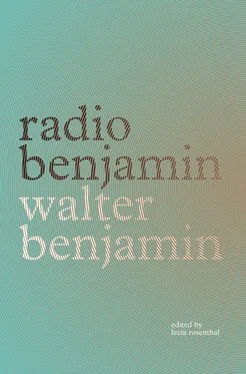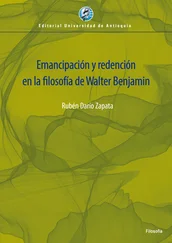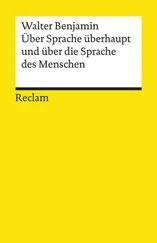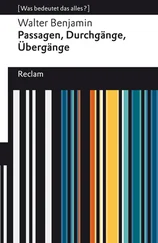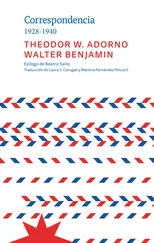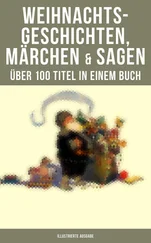We hear: Good evening, Announcer. Be well. Good night. Bye!
MILLER’S WIFE: All right, come on in, Mr. Peter, for that must be your name. Be careful you don’t get covered with dust. It’s always dusty in a mill. Hurry, Hanni, bring the young man last night’s potato fritters and a cherry brandy.
Pause. Sound of clattering plates.
MILLER’S SON ( whispering ): Mother, how strange Mr. Peter looks.
MILLER’S WIFE: What do you mean?
MILLER’S SON ( whispering ): As if something had spooked him.
MILLER’S WIFE: Silly boy, off to bed. And you, Mr. Peter, will not stay up much longer either. For as you know, at the mill, the racket starts early. It is no place for people who like to sleep in.
COAL PETER: Right, Mrs. Miller. But first you must allow me to thank you sincerely for the potato fritters.
MILLER’S WIFE: Don’t mention it. But come along. I’ll show you to your bed.
COAL PETER: I’m sure to sleep well here. So many pillows! They reach almost to the ceiling.
MILLER’S WIFE: Well you see, here in the Black Forest we don’t have double windows. One must have thick comforters when the winter frost comes.
Again, voices: Have a good night’s sleep! Good night! Don’t forget to blow out the candles!
COAL PETER ( yawning ): Aah, how amazing that a person could be so tired. I believe that if the devil himself were to appear, I’d just lie here and turn the other way.
Brief pause. A knock.
COAL PETER: Was that a knock? It’s not possible. They’re all asleep. Another knock.
COAL PETER: Someone must be at the door. Come in!
MILLER’S SON: Dear Mr. Peter, please, please, don’t tell on me. Let me stay here with you for a little while. I am so afraid.
COAL PETER: Come now, what’s wrong? Why are you so afraid?
MILLER’S SON: Mr. Peter, you’d be afraid too, if you had seen what I saw today. — Perhaps you did notice it when you came in — that book bound in red velvet lying on the table.
COAL PETER: Oh the album, yes, of course. With pictures inside, no?
MILLER’S SON: There are indeed pictures in it, Mr. Peter, and on one page there are three that I can’t get out of my head; their eyes follow me everywhere. Fat Ezekiel and tall Schlurker and the Dance Hall King are their names, it says so underneath.
COAL PETER: What’s that you say? Fat Ezekiel, tall Schlurker … I’ve heard those names before. And the Dance Hall King? Isn’t that the poor man who once was a servant to a lumber merchant and then became filthy rich all of a sudden? Some say he found a pot of gold under an old pine tree, while others insist that he speared a bundle of gold in the river Rhine, not far from Bingen, with a spear like those that raftsmen use to catch fish, and that the gold belonged to the great treasure of the Nibelungen that was buried there. In short, he had suddenly become rich, and young and old regarded him as a prince.
MILLER’S SON: But his eyes! You should have seen his eyes!
COAL PETER: Well, you know, it’s quite possible. People who see something especially horrible can get a peculiar look in their eyes forever.
MILLER’S SON: But what do you think he might have seen that was so very horrible?
COAL PETER: Well, I’m not sure, but did you know that on the other side of the Black Forest, where the lumberjacks and raftsmen live, people say that something not quite right is going on?
MILLER’S SON: Oh, I know, you must be talking about Dutch Michael. My father has already told me about him. He’s the giant of the forest, the coarse, broad-shouldered chap, and those who have seen him say they would not like to pay for the calves’ hides it would take to make one pair of his boots.
COAL PETER: Yes, I was just thinking of him.
MILLER’S SON: So you do know something about him after all, Mr. Peter.
COAL PETER: Shame on you, child, for saying such a thing. How should I know anything about Dutch Michael? Sometimes when I hear what people are saying, I ask myself: Isn’t it just envy? Aren’t they simply envious of the lumberjacks who are always swaggering around like lords in their doublets with buttons, buckles, and chains, draped in half a hundredweight of silver? Anybody could get jealous, seeing that.
MILLER’S SON: Have you been envious of it too, Mr. Peter?
COAL PETER: Envious, good heavens no, I have no cause for that; I’m the last one to be envious.
MILLER’S SON: So that means then that you yourself are that rich, Mr. Peter? Or maybe even richer?
COAL PETER: Surely, my boy, you must have noticed that I am a poor wretch. I don’t have an ounce of silver on me, here or at home. But I have something even better. Only I can’t tell you what it is.
MILLER’S SON: Now you’ve made me curious. I won’t leave your room until you’ve told me.
COAL PETER: Well, can you keep a secret?
MILLER’S SON: Of course, Mr. Peter, I promise you that no one will hear it from me.
COAL PETER: In that case, let me ask you something. Have you ever heard of the Little Glass Man? The Little Glass Man who never shows up without his peaked hat with a broad rim, a doublet, white trousers, and red stockings. The friend of glass makers and coal burners and all the other poor people who live on this side of the woods.
MILLER’S SON: The Little Glass Man? No, Mr. Peter, never heard of him.
COAL PETER: Then perhaps you’ve heard of Sunday’s Child?
MILLER’S SON: Oh, yes, those who are born on Sunday at noon.
COAL PETER: Well, that’s me. Do you understand? — but that’s only half my secret. The other half is my rhyme.
MILLER’S SON: Now, I can’t follow a word you are saying, Mr. Peter.
COAL PETER: The Little Glass Man, you see, he appears to Sunday’s Children, but only under a pine hillock, where the trees are so dense and stand so tall that even in broad daylight it’s almost night, and where one hears neither an ax nor even a bird, if one knows the right rhyme. And that my mother taught me.
MILLER’S SON: Surely, you are to be envied, Mr. Peter.
COAL PETER: Yes, one might envy me had I memorized the little rhyme, but when I stood there before the pine tree and wanted to recite it, I realized I had forgotten the last line. The Little Glass Man vanished as quickly as he had appeared. “Mr. Glass Man,” I called, after some hesitation, “be so kind as not to make a fool of me. Mr. Glass Man, if you think I didn’t see you, you are quite mistaken. I saw you peeking out from behind the tree.” But there was no answer, and only at times did I hear a soft, rasping chuckle from behind the tree. Finally, I thought, with one leap, I could catch that little guy. When I sprang behind the pine tree, though, there was no Little Glass Man anywhere to be found; there was only a dainty little squirrel racing up the trunk.
MILLER’S SON: So, Mr. Peter, you’ve just come from the Little Glass Man?
COAL PETER: That’s right.
MILLER’S SON: But now you must tell me your rhyme, as much as you remember of it.
COAL PETER: No, my boy. It’s gotten late and we should get some sleep — and your three bad men, you will have forgotten them by tomorrow, and when we wake up, we’ll all be cheerful.
MILLER’S SON: Well then, good night, Mr. Peter. But I’m not cheerful, because you didn’t tell me the rhyme.
We hear the two saying goodnight.
COAL PETER: Now I’m alone and want to sleep. I don’t want to recite the rhyme to anyone but the Little Glass Man, oh, if only I remembered it!
A little music. Peter sings along in a drowsy voice.
Keeper of wealth in the forest of pine,
Hundreds of years are surely thine:
Thine is the tall pine’s dwelling place— 5
Читать дальше
